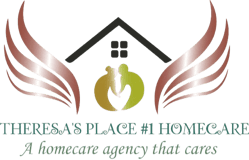When you’re considering 24/7 in-home senior care in Essex County, it’s crucial to grasp the potential costs involved. Typically, you could expect daily rates ranging from $300 to $450, translating to $20-$30 per hour. These numbers can fluctuate based on specific needs. Understanding these costs is important for effective financial planning. But how do these expenses stack up against other care options, and what financial strategies can you employ? Let’s explore further.
Factors Influencing the Cost of In-Home Senior Care
When considering the cost of in-home senior care, several factors play a crucial role in determining the final expenses. First, assess the personal needs of the senior. Do they require assistance with basic daily tasks or more specialized medical care? Understanding these needs helps you evaluate what level of service is necessary. Additionally, caregiver qualifications greatly impact costs. Highly qualified caregivers with specialized skills or certifications may charge more, but they offer peace of mind by ensuring competent care. It’s important to balance the senior’s needs with the caregiver’s expertise, as this alignment affects both the quality of care and budget. By carefully analyzing these factors, you can tailor a care plan that both meets the senior’s needs and fits your financial situation.
Average Pricing for 24/7 Care Services in Essex County
Understanding the average pricing for 24/7 care services in Essex County is essential when planning for long-term in-home senior care. In Essex County, the average daily rates for round-the-clock care typically range from $300 to $450. This pricing reflects the combined costs of continuous hourly service charges, which can vary between $20 and $30 per hour. It’s important to note that these rates can fluctuate based on the specific needs of the senior, such as medical requirements or specialized assistance. By analyzing these costs, you can better budget for your loved one’s care while ensuring they receive the necessary support. Remember, thorough research and planning can help you navigate these financial commitments with confidence and compassion.
Comparing In-Home Care to Assisted Living Costs

When comparing the costs of in-home care to assisted living, you’ll want to contemplate both the financial breakdown and the flexibility each option offers. In-home care often allows for more personalized service, which can greatly impact your loved one’s quality of life. By understanding these differences, you can make an informed decision that aligns with both your budget and their needs.
Cost Breakdown Analysis
Choosing between in-home senior care and assisted living can greatly impact both your finances and your loved one’s quality of life. A thorough cost evaluation is essential. In-home care may appear costly at first glance, but consider the personalized service comparison. You’re paying for one-on-one attention, a familiar environment, and flexible care schedules. On the other hand, assisted living offers a bundled approach, covering housing, meals, and social activities. Yet, these packages might include services your loved one doesn’t need.
In Essex County, the average cost for 24/7 in-home care varies but often aligns with or exceeds assisted living fees. Yet, it’s vital to factor in hidden costs like transportation and personal care products. Balancing financial aspects with emotional comfort is key in your decision-making process.
Service Flexibility Comparison
While both in-home care and assisted living offer essential services, they differ considerably in flexibility. In-home care provides customizable service options customized to your loved one’s specific needs, allowing you to adjust care schedules as situations change. This flexibility guarantees continuity of care, accommodating varying levels of assistance, whether daily, weekly, or sporadically as required.
In contrast, assisted living facilities often follow fixed care schedules, limiting the ability to modify services without altering contractual terms or incurring additional fees. This rigidity can make it challenging to adapt quickly to your loved one’s evolving needs. Analyzing these differences, in-home care stands out for its capacity to provide personalized, adaptable service options, making it a practical choice for those seeking flexible, cost-effective care solutions.
Quality of Life Impact
Examining the flexibility of care services naturally leads to reflecting on how these choices affect quality of life, especially regarding cost. When you weigh in-home care against assisted living, an impact assessment reveals significant lifestyle enhancements. In-home care offers personalized attention, fostering a familiar environment that enhances daily comfort and autonomy.
Here’s a comparative cost table:
| Care Aspect | In-Home Care | Assisted Living |
| Personalization | High | Moderate |
| Environment | Familiar | Institutional |
| Cost Flexibility | Flexible | Fixed |
| Lifestyle Impact | Positive | Neutral |
| Autonomy Level | High | Limited |
This table highlights how in-home care often enhances quality of life more effectively. By opting for in-home care, you’re not only optimizing costs but also enriching your loved one’s lifestyle.
Financial Assistance and Insurance Options
When considering in-home senior care in Essex County, understanding your financial assistance and insurance options can alleviate some of the burden. You’ll want to explore how Medicaid and Medicare coverage might apply, as well as whether long-term care insurance is a viable option for your situation. It’s essential to evaluate these avenues carefully to guarantee you make informed decisions that suit your needs.
Medicaid and Medicare Coverage
Maneuvering through the complexities of Medicaid and Medicare can feel intimidating, but understanding these programs is essential for easing the financial burden of in-home senior care in Essex County. To determine Medicaid eligibility, assess your income and asset limits, as these criteria can vary by state. Once eligible, Medicaid can cover a significant portion of in-home care costs, providing much-needed relief.
Medicare coverage, on the other hand, is more limited. While it generally covers medical needs, it doesn’t usually pay for extended personal care or assistance with daily activities. However, certain conditions, like short-term skilled nursing or therapy services, might be covered. It’s vital to review your specific Medicare plan details and consider supplemental insurance options that might fill in the gaps.
Long-Term Care Insurance
Have you considered how long-term care insurance could ease the financial burden of in-home senior care? As costs rise, insurance coverage becomes important. By securing a policy, you provide financial relief, allowing you to focus on your loved one’s well-being. Long-term benefits of these policies often include covering daily living activities assistance, medical care, and sometimes even home modifications. However, it’s necessary to thoroughly review each insurance plan. Not all policies cover 24/7 care or specific needs, so understanding the terms is essential. Evaluate the premiums, coverage limits, and any waiting periods involved. Doing so guarantees you choose a suitable option that aligns with your financial situation and caregiving needs. This thoughtful approach can provide peace of mind.
Customizing Care Plans to Fit Your Budget

How can you guarantee that your loved ones receive the care they need without straining your finances? Custom care plans are a lifesaver, allowing you to tailor services to match your budget constraints. By focusing on essential services, you can secure quality care while managing costs. Here’s how to customize effectively:
- Identify Priorities: Determine which daily tasks are essential for your loved one’s well-being. Focus on must-haves rather than optional assistance.
- Flexible Scheduling: Opt for part-time or intermittent care instead of full-time, reducing expenses while still covering critical needs.
- Combine Resources: Utilize community programs or family support to supplement professional care, stretching your budget further.
Taking these steps helps you provide necessary support without financial strain, securing your loved ones’ comfort and your peace of mind.
Additional Expenses to Consider
While customizing care plans is essential, it’s equally important to anticipate additional expenses that may arise. These can include costs for additional services and potential hidden fees. For instance, if specialized medical equipment or dietary needs are required, they might not be covered in standard packages. Carefully review contracts to identify any hidden fees that could unexpectedly impact your budget. Here’s a table to help you visualize potential costs:
| Expense Type | Example Costs |
| Additional Services | Physical therapy, $50/hour |
| Hidden Fees | Administrative fees, $100/month |
| Equipment | Medical devices, $200/item |
| Special Diets | Nutritional supplements, $30/month |
Understanding these elements enables you to plan effectively, ensuring your loved one receives thorough care without unforeseen financial strain.
How to Choose the Right Care Provider
When selecting the right care provider for a loved one, what key factors should you prioritize? Start by researching providers thoroughly to guarantee quality and reliability. Here’s a concise guide to aid your decision-making:
- Experience and Credentials: Verify the provider’s credentials and experience in senior care. An experienced team can offer better care and peace of mind.
- Personalized Care Plans: Assess if the provider offers personalized care plans that cater to your loved one’s specific needs, guaranteeing extensive support.
- Interviewing Caregivers: Conduct interviews with potential caregivers to gauge their compatibility and empathy. A caregiver’s attitude can markedly influence your loved one’s well-being.
Approach this process with diligence and empathy, focusing on what truly matters for your loved one’s comfort and safety.
Tips for Budgeting and Financial Planning
Managing costs effectively can greatly alleviate the financial burden of in-home senior care, especially in areas like Essex County where expenses can be substantial. Start by developing robust budgeting strategies. Break down monthly costs for care services, medications, and any additional support required. Prioritize essential expenses and identify areas where you might cut costs without compromising quality. Explore diverse financial resources such as long-term care insurance, government assistance programs, and veterans’ benefits. These can considerably offset costs and ease financial strain. Regularly review and adjust your budget to reflect changes in care needs or financial resources. Engaging a financial planner can provide professional insights customized to your situation, ensuring you’re making informed decisions to sustain quality care.
Frequently Asked Questions
How Do I Assess the Quality of In-Home Senior Care Providers?
To assess in-home senior care quality, read care provider reviews and compare them against established quality benchmarks. Look for consistent feedback on reliability, empathy, and professionalism. Don’t hesitate to ask questions and request references for assurance.
What Qualifications Should Caregivers Have for 24/7 In-Home Care?
You should guarantee caregivers have necessary certifications and significant experience. Look for CPR and first aid certifications, dementia care training, and at least two years of hands-on experience. This guarantees they’re equipped to handle your loved one’s needs compassionately.
How Can I Ensure the Safety of Seniors Receiving In-Home Care?
Guarantee seniors’ safety by implementing safety measures and guaranteeing caregiver training. Regularly assess the home environment for hazards, verify caregivers’ qualifications, and maintain open communication with the care team to address concerns proactively and empathetically.
Are There Any Local Essex County Regulations for In-Home Senior Care?
You’re curious about local regulations for in-home senior care in Essex County. They guarantee caregiver standards by requiring background checks, training, and adherence to safety protocols. Understanding these rules helps you provide safe, quality care for your loved ones.
What Are the Emergency Protocols for In-Home Senior Care Services?
You’ll want to guarantee caregivers are properly trained in emergency procedures. Their training should cover recognizing medical emergencies, administering first aid, and contacting emergency services. This guarantees your loved ones receive immediate, appropriate care during critical situations.
Conclusion
When budgeting for 24/7 in-home senior care in Essex County, it’s essential to balance quality and affordability. Consider daily rates and additional costs like specialized care or equipment. To make informed decisions, compare in-home care with assisted living expenses, explore financial assistance, and insurance options. Customize care plans to fit your financial situation, and choose a provider like Theresa’s Place Home Care who aligns with your needs. By carefully planning, you guarantee your loved one receives the necessary care without compromising financial stability.

